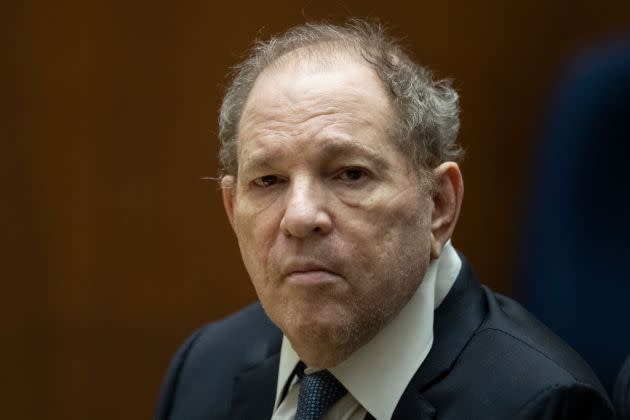Harvey Weinstein Trial Jurors Explain Decision Behind Mixed Verdict: ‘Nothing Was Super Clear’
- Oops!Something went wrong.Please try again later.
- Oops!Something went wrong.Please try again later.

Following Harvey Weinstein’s Los Angeles trial on sexual assault and rape charges, some jurors have opened up about the deliberations that resulted in the mixed verdict of guilty on three charges, an acquittal on another, and a mistrial on three charges.
In the end, jurors ultimately found Weinstein guilty of rape and two counts of sexual assault related to Jane Doe 1, an actress who said the producer raped her in her hotel room in Feb. 2013.
More from Rolling Stone
Weinstein Accusers Celebrate Convictions Despite Mixed Verdicts: 'A Win for One Is a Win for All'
Harvey Weinstein Found Guilty on Three Counts of Rape, Sexual Assault
However, the jury was deadlocked when it came to the accusations brought forth by Jennifer Seibel Newsom, now the wife of California Gov. Gavin Newsom, who testified that Weinstein cornered her in a hotel suite in 2005 and forced her into multiple sex acts over her obvious protest.
According to jurors, while they didn’t doubt the incident happened, it was Seibel Newsom’s continued communication with Weinstein after the alleged assault that gave them “reasonable doubt,” Variety reports.
“In a 2 ½ year period, she had sent Mr. Weinstein over 35 emails,” a juror named Michael said of Siebel Newsom. “She wanted access to Harvey Weinstein. It sounded like she wanted access to a lot of his resources. It raised a reasonable doubt in my mind.”
A juror named Jay added of the emails between Siebel Newsom and Weinstein, “It looked like they just had a relationship.”
Siebel Newsom’s lawyer released a statement after the verdict saying her client “shared her story not with an expectation to testify, but to support all the survivors who bravely came forward.”
“While we are heartened that the jury found Weinstein guilty on some of the counts, we are disappointed that the jury could not reach a unanimous verdict on (Siebel Newsom),” Elizabeth Fegan, a managing partner of FeganScott, said. “She will continue to fight for all women and all survivors of abuse against a system that permits the victim to be shamed and re-traumatized in the name of justice.”
One of the jurors added that the testimony from “prior bad acts” witnesses, the inclusion of which the prosecutors fought for, ended up hurting their case.
“If I was the prosecutor I would have not had them testify,” Michael said. “Those two almost proved the defense’s case… It’s an industry of flexible morals. I’m sure all these women hated every second of what was going on, but this is how the industry is.”
On the count of sexual battery by restraint charge involving Lauren Young, the jury was also unable to come to a unanimous decision, with voting deadlocked at 10-2 before a mistrial was declared on that charge.
“Everybody seemed very believable — it’s just hard to prove all of it, with time and memory. It’s just their word,” juror Jay told Variety. “Nothing was black and white. Nothing was super clear.”
However, the jurors all agreed to convict on one count of rape and two counts of sexual assault against Jane Doe 1 in part because of Weinstein’s lawyer Alan Jackson’s brazen argument during closing statements that she was lying and that there’s no proof that Weinstein was even there at the time of the incident.
“I think Jackson’s last comment where Harvey just wasn’t there, hurt him,” a juror named Arnold told The Associated Press. “They were defending all these things, and then they just say he’s not there. Well, they should have just said he’s not there.”
Michael added, “I thought Jane Doe 1 was very convincing in her story.”
Following the three guilty counts, Weinstein faces a maximum of 18 years in prison. He was previously sentenced to 23 years in prison stemming from his conviction in a New York trial on sexual assault charges.
Best of Rolling Stone
